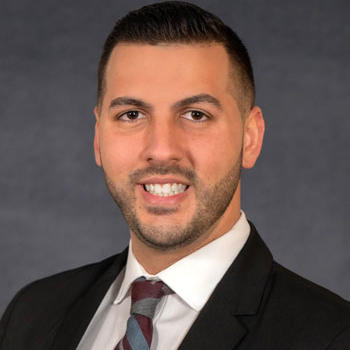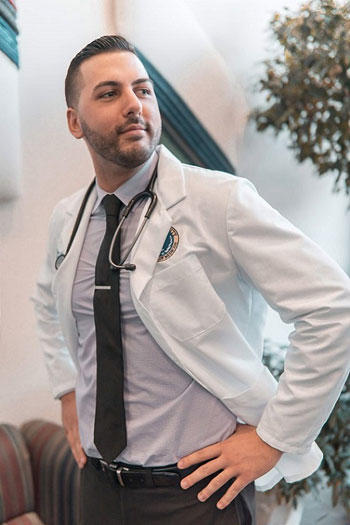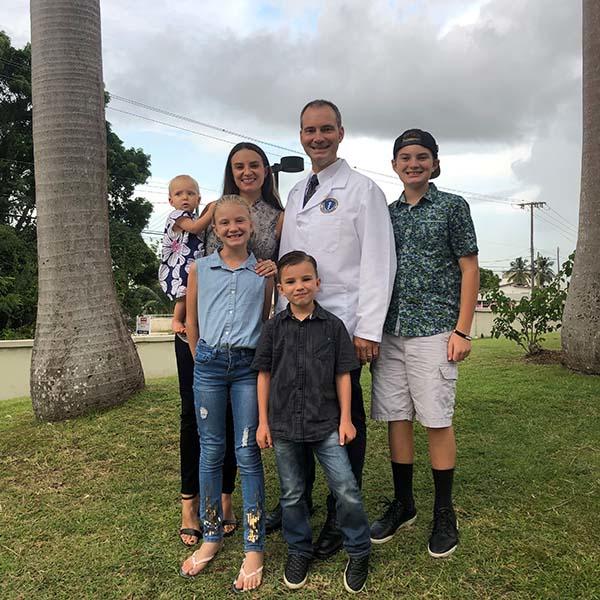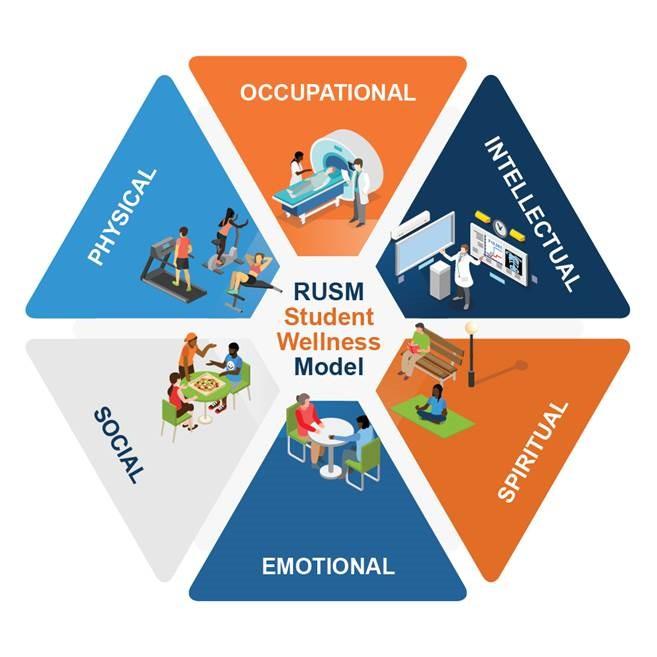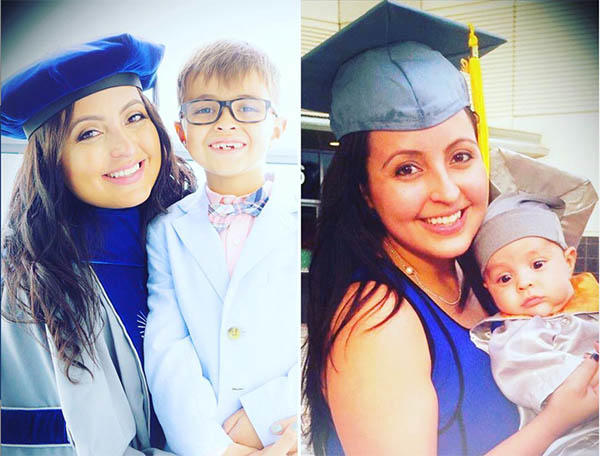Entering as a non-traditional student a few years after completing undergrad, Ross University School of Medicine (RUSM) clinical third-year Ryan Azarkhail remembers questioning his study skills and wondering if he’d match the intellect of peers. But soon, spending eight hours a night on homework became second nature. With basic sciences done, the second round of jitters surfaced in preparation for Internal Medicine Foundations (IMF).
“I had butterflies,” Ryan admits. “I was nervous, excited and scared, wondering if I’d be able to hold my own in the hospital or make a fool of myself.” At orientation, nerves calmed once he spotted familiar faces. “I realized we were all walking around with our white coats on. There’s a lot of responsibility that comes with that.”
Next up — the anticipated moment of meeting his first patient. “I was standing outside of the room and had to legitimately talk myself into going in.” Taking a few deep breaths, Ryan planted a smile and opened the door, only to find an empty room. He located his patient in the dialysis area and performed his first exam in an open space.
The First Round
“You never forget your first patient experience. She was a real human being, not a paid actor. She looked at me and depended on me. There are certain expectations and you have to be prepared. It’s frightening but you fall back on the things you’ve been taught in IMF and on island.”
Ryan said interacting with patients has been exhilarating but also challenging. Most supported his education, eager to help him learn but others were not ready to answer additional questions from a medical student. “Some were laid back even though the questions may have been tedious. Others were battling health issues and didn’t want to answer another round. You quickly learn how to grapple with different personalities.”
Balancing it all has proven tough too — studying for the step exam while rounding and trying to catch some shut-eye. He wasn’t sure whether to take the exam before IMF but is glad he waited. “I had to sacrifice study time, but I gained clinical knowledge that was actually on the test.” Ryan also felt relieved to finish rotation before the pandemic gained ground in the U.S. “COVID-19 was just starting to resonate in Florida. I got through it and felt like I mitigated the risk.”
Do I Have COVID-19?
Until he didn’t. A couple days later, something was off, and he contracted a high fever. “It hit like a tidal wave.” He took fever-reducing medicine and went to bed, preparing to reassess in the morning. Waking up sluggish with a fever and headache, he thought it was a virus or repercussions from his recent flu shot. But on day three, with the worsening body aches, fatigue, headaches and no motivation, the medical student started contact tracing. “There were too many possibilities. I felt like patient zero in Florida.” He was also puzzled because of his acute attention to self-care and fitness.
“I never in a million years thought I would catch this virus or be symptomatic. I felt like I got hit by a train. I don’t think I realized the gravity of it, the profound reverberations of this virus and how it impacts people across the board.” Three days later, his dad started experiencing symptoms. Luckily, neither Ryan nor his dad encountered breathing issues or required hospitalization, and both made a full recovery.
Though scary at the time, Ryan is thankful he can return to rotation with firsthand knowledge of the virus. “Having COVID taught me to roll with the punches and take it in stride, knowing anyone is susceptible and everyone should take precautions.”
Use Your Time Wisely
The former IMF orientation leader, welcome committee member and Student Government Association president continues to maintain a positive outlook on pandemic life and remote learning. “I’m recharging my battery before rotations and residency start because we won’t have time like this again.”
Originally a finance major, Ryan took his mom’s suggestion to join healthcare and tap into his compassionate side. “I knew this was it when I started anatomy class.” After college, he became a healthcare recruiter and gained skills he knows will be an asset during his career. Now, he offers advice to medical science students.
“Continue to stay flexible and adaptable because these characteristics will speak volumes as future physicians,” said the youth basketball coach. “For Step 1 studying, treat it like a fulltime job — put in the hours and treat every day as if you have a test the next day. Keep the pressure on but don’t give yourself anxiety. Be efficient and make the most of all your classes; whatever you put in is what you get out. Work hard; it will only make you a better physician. And don’t forget, we’re going through this storm together and we’ll all come out stronger.”
Learn More
Read further about Ryan's medical journey in a previous profile.
Road to Residency Library
If you have a topic you’d like to learn more about, please share your feedback with us.

